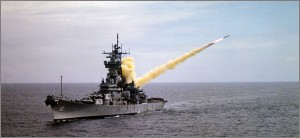Europe’s foreign policy chief has urged the UN Security Council to pass a resolution being drafted by British diplomats authorising a raft of EU measures, including military action, to defeat Libyan-based people-smuggling gangs.
Federica Mogherini spelt out the harrowing humanitarian impact of the Mediterranean migrant crisis.
She also said that the EU would adopt a new accord on migration in Brussels tomorrow (Wednesday). “No refugees or migrants intercepted at sea will be sent back against their will,” she said.
Under the accord, Britain is expected to be forced to take in tens of thousands of refugees to redistribute migrants throughout Europe. The controversial quota system could double the number of asylum-seekers in Britain from about 30,000 to more than 60,000.
France’s interior minister, Bernard Cazeneuve, yesterday said that his country supported the plan.
European members of the Security Council, including British officials, are drafting a resolution that would allow European forces, including the Royal Navy, to conduct operations against the gangs and destroy empty boats in international waters and also in Libya’s territorial waters.
A vote may be held next week if Russian objections can be overcome. Drone strikes and air bombing raids against the gangs’ sites in Libya have been discussed, but Western diplomats insisted there would be “no boots on the ground”.
Representatives of the conflict-torn country’s rival governments criticised the plans, with one leader warning that military action would be an “act of war”.
Libya’s ambassador to the UN, Ibrahim Dabbashi, told the BBC that his country was against the proposal. “We want to know how they can distinguish between the fishers’ boats and the traffickers’ boats,” he said.
In another reminder of the dangers, a Turkish freighter came under artillery and aerial fire from unidentified attackers near the Libyan coast, leaving one crew member dead and several injured, Turkey’s foreign ministry said. Human smuggling gangs and Islamic terrorist groups have taken advantage of the chaos in Libya since the overthrow of Col Muammar Gaddafi to establish bases.
Europe’s chief diplomat said the priority was to tackle the root causes of the tide of migrants attempting to reach Europe across the Mediterranean from North Africa and the Middle East.
It is not clear exactly what sort of military action the EU is contemplating. But before the general election, David Cameron said the aim of any military intervention should be to “smash the gangs” operating in Libya.



